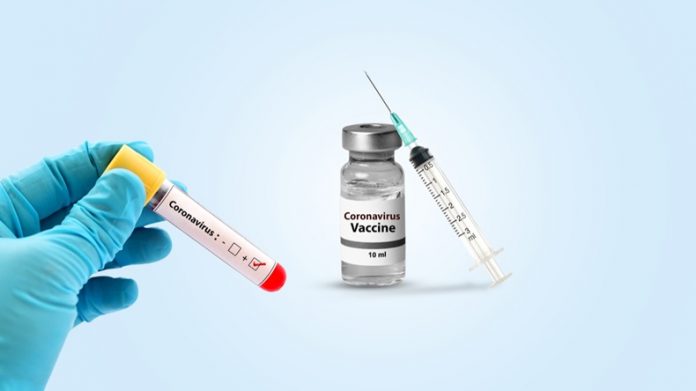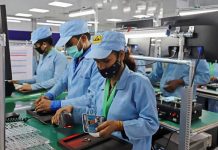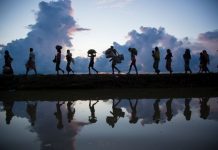This article is written by Sahaja, studying at NALSAR University of Law, Hyderabad. This article talks about the PIL filed by Dhruti Kapadia concerning the door-to-door vaccination model implemented in Kerala and Jammu and Kashmir.
Table of Contents
Introduction
On January 16, 2021, India began administering COVID-19 vaccinations. India had dispensed 323,663,297 doses in total as of June 27, 2021, including first and second doses of currently licensed vaccines.
Two vaccines have been approved for administering in India- Covishield, and Covaxin. Oxford University and AstraZeneca collaborated to create the Covishield Coronavirus vaccine. The shot can be produced in India by the Serum Institute of India (SII), the world’s largest vaccine manufacturer. Covaxin, on the other hand, is created by Bharat Biotech in Hyderabad. It is also India’s first homegrown anti-viral vaccination. The vaccine was created by the Hyderabad-based pharmaceutical company with the support of the Indian Council of Medical Research (ICMR) and the National Institute of Virology.
Vaccination programmes
Phase 1
Health personnel and frontline employees, such as police, paramilitary forces, sanitation workers, and disaster management volunteers, were involved in the implementation phase. Only 14 million healthcare and frontline employees have been vaccinated as of March 1, falling short of the 30 million target. This first phase of vaccination began on 16 January 2021.
Phase 2
All residents above the age of 60, residents between the ages of 45 and 60 with one or more qualifying comorbidities, and any health care or frontline worker who did not receive a dose during phase 1 were included in the next phase of the vaccination deployment. In order to avail of the vaccines in this phase, residents had to register for the vaccine online, on the Aarogya Setu app and the cowin website.
In March 2021, as the country began to see a big second wave of illnesses, vaccine exports were halted, and the government purchased 110 million Covishield doses from SII.
All inhabitants over the age of 45 have been eligible since April 1. Prime Minister Narendra Modi announced on April 8 that a four-day Teeka Utsav (“Vaccine Festival”) will be held from April 11 to 14, to speed up the vaccination programme by vaccinating as many eligible residents as possible. India had reached a total of over 111 million vaccination doses by the end of the Utsav.
Phase 3
The DCGI (Drugs Controller General of India) licensed Russia’s Sputnik V vaccine for emergency use in India on April 12th. In September 2020, a phase 3 trial was done in the country, with 91.6 percent efficacy.
On April 19, it was announced that the next phase would begin on May 1st, allowing any citizens over the age of 18 to participate. Individual stakeholders were also given more flexibility in how they ran the vaccine program during phase 3. Only half of the vaccines procured from manufacturers by the Central Drugs Laboratory would be distributed by the federal government under this scheme.
Vaccination model in Kerala
When there is a critical scarcity of vaccinations in the country and COVID-19 instances continue to rise, the focus is shifting to the necessity for states to encourage vaccine waste. Tamil Nadu had the highest vaccine wastage rate of 12 percent in April, while Kerala had 0% wastage.
Kerala has considerably reduced wastage. This was possible because of the strong immunization heritage, tight storage, transportation, and usage standards, skilled health staff, especially ASHAs (frontline social workers), and efficient inventory control. The field personnel have been told that the vaccination is a limited supply and that they must ensure that everyone receives it.
Many states have reported vaccine waste as a result of their failure to build regional vaccine centers in each district and evenly distribute vaccines, according to the Indian Medical Association, which is involved in vaccination promotion and coordination. Kerala’s achievement in reducing vaccine waste might be ascribed to the state’s rapid establishment of multiple regional centers.
Kerala has also rolled out the door-to-door model of vaccination for the elderly and the disabled who find it difficult to get to vaccination centers to get themselves vaccinated.
Vaccination model in Jammu and Kashmir
The Nomad Village Weyan in Jammu & Kashmir’s Bandipora district has become the first village in which the whole population over the age of 18 has been vaccinated. This achievement is credited to the ‘J&K Model,’ in which the government decided to reach out to the public rather than relying on individuals to come to the vaccination center.
The local health department states that the whole population over the age of 18 was vaccinated, with a total of 362 recipients. It’s worth noting that during the summer, the residents of the village travel to the upper reaches with their livestock, so it was critical to reach out to them before they left.
Apart from this success, with almost 67 percent of its population over the age of 45 previously vaccinated and three districts obtaining 100% coverage in this age group, Jammu and Kashmir are emerging as one of the country’s leading regions in terms of Covid-19 vaccination.
Different strategies were adopted in Kashmir to attain such high rates of vaccination. Religious leaders were brought in to help raise awareness in Kashmir, particularly during the Islamic holy month of Ramzan. The local media was also recruited to guarantee that the message about the importance of getting vaccinated was conveyed to the general public.
Micro-planning i.e., a decentralized process that involved the district authorities, panchayats, and tehsil level officers who worked in tandem with the J&K administration. Door-to-door surveys were conducted with the assistance of panchayat and booth-level election officers to guarantee that no one was left behind.
PIL (Public Interest Litigation) filed for door to door vaccination
Issues put forth
The Bombay High Court stated on 11 June that the Union government should examine Kerala and Jammu and Kashmir’s successful door-to-door vaccination programmes and make an informed judgment on its current policy, which claims that door-to-door immunization is not viable.
Advocates Dhruti Kapadia and Kunal Tiwari filed a public interest lawsuit requesting door-to-door immunization for senior residents over the age of 75, as well as people who are particularly abled, wheelchair confined, or bedridden.
Chief Justice Dipankar Datta and Justice G S Kulkarni of a division bench said they could not understand why the Centre was having trouble initiating door-to-door vaccination campaigns when states like Kerala and Jammu and Kashmir were already doing so.
One of the main issues raised was how the door-to-door vaccination was not possible presently when states like Kerala and Jammu and Kashmir were already implementing the same. The court was also pleased with the BMC’s (Brihanmumbai Municipal Corporation) performance during the pandemic and inquired as to why the civic body was hesitant to implement door-to-door immunization. To this, the BMC counsel Sakhre cited a letter from civic commissioner Iqbal Chahal to the Union government. In this letter, he stated that the civic body was eager to conduct door-to-door vaccination and wanted guidelines from the Union government.
The Bombay HC’s stand
The Court found that a policy that leads to the aforementioned conclusion that senior persons must choose between life and vaccine is arbitrary and unreasonable because the elderly citizens have the same right to protection under Article 21 of the Indian Constitution as the young and able-bodied inhabitants. As a result, such a justification is difficult to sustain.
With regard to this it was pointed out that, if long exposure to the vaccine causes contamination, it is the responsibility of the government’s appropriate department to investigate ways to prevent contamination as well as exposure beyond the recommended temperature so that the vaccination program can be brought to the doorsteps of the elderly and disabled.
There is no reason why this particular reason should prevent the adoption of a door-to-door vaccination policy if proper temperature control measures are taken and personnel well trained to vaccinate along with the vaccine are made to travel in appropriate vehicles to reach duly identified elderly and disabled citizens who could benefit from such vaccination.
The panel ordered Additional Solicitor General Anil Singh to seek instructions on the letter from the Union Ministry of Health and Family Welfare’s Health Secretary and adjourned the case to June 14.
The COVID-19 epidemic has a nationwide impact, according to ASG Singh, and all states must work together with the Centre to ensure speedy and maximum vaccination of the residents.
Instructions from the Union Ministry of Health
The Municipal Corporation of Greater Mumbai (for short, “the MCGM”) informed the Secretary, Ministry of Health and Family Welfare, Government of India, in a letter dated June 10, 2021, of the MCGM’s willingness to conduct door-to-door vaccination, and that such a course of action could be initiated by the MCGM if permitted by the Government of India.
Dr. Manohar Agnani, Additional Secretary, Ministry of Health and Family Welfare, Government of India, has responded to the MCGM’s letter, informing the Municipal Commissioner, among other things, that vaccination is provided at designated Government and private vaccination centers in accordance with COVID 19 vaccination guidelines.
The letter also states that technical experts debated the issue of door-to-door vaccination for the disabled and elderly at a meeting of the ‘National Experts Group on Vaccine Administration for COVID-19′ (NEGVAC), who concluded that vaccination cannot be given at the doorstep due to various issues and risks.
Mr. Singh was also asked by the court if the Indian government had taken any steps to prevent the state of Kerala, the Union Territory of Jammu and Kashmir, and other states from starting door-to-door vaccination campaigns. The reply to this was that the guidelines issued were only advisory and that there was no prohibition on the door-to-door vaccination programmes.
The Court thus decided that the state government would decide on door-to-door vaccinations.
Vaccination in Mumbai
The Maharashtra State Government, in collaboration with local governments, has been working to vaccinate a huge number of individuals across the state. However, many people have reported problems with vaccination centers, as well as large lines and waiting times.
BMC authorities want to start a door-to-door immunization program in Mumbai to solve these challenges. Permission has been obtained from the appropriate departments, and the campaign is now being carried out across the city’s many societies.
Meanwhile, the federal government has not issued any policies or plans in this regard, but comparable programs have already been implemented in the state to assist the disabled and old. Associations have also requested the same, as it will save many individuals in the state from getting vaccinated.
The door-to-door vaccination model that has been implemented by the authorities in Mumbai is a consequence of the PIL filed by Dhruti Kapadia and this has been replicated in Mumbai with reference to the models in Kerala and Jammu and Kashmir.
Conclusion
The door-to-door vaccination models adopted by many States and cities in India have indeed produced successes when it comes to vaccinating the residents of the country.
In the ongoing fight against the Covid-19 pandemic, Bikaner, Rajasthan, is prepared to launch a door-to-door immunization program.
During the vaccination drive, the state will inoculate people in Bikaner who are above 45 years old. The state government has set up a WhatsApp helpline for people to register for the Covid-19 vaccine by providing their name and address. It has dispatched two ambulances and three mobile teams to conduct a door-to-door immunization campaign in the town. If at least 10 people sign up for the Covid-19 vaccine, a vaccine van will visit their homes to avoid wasting doses. One dose of the Covid-19 vaccine can be given to ten persons from a single vial.
This vaccination model needs to be implemented and executed most efficiently and cautiously. The transportation and storage of these vaccines need to be done in such a way that there is no wastage of vaccines or unintended consequences. The State Governments permitting this vaccination model must also specify guidelines and must ensure to set up more and more ‘near home’ vaccination centers in order to streamline the process.
References
LawSikho has created a telegram group for exchanging legal knowledge, referrals, and various opportunities. You can click on this link and join:
https://t.me/joinchat/J_0YrBa4IBSHdpuTfQO_sA
Follow us on Instagram and subscribe to our YouTube channel for more amazing legal content.
 Serato DJ Crack 2025Serato DJ PRO Crack
Serato DJ Crack 2025Serato DJ PRO Crack











 Allow notifications
Allow notifications


